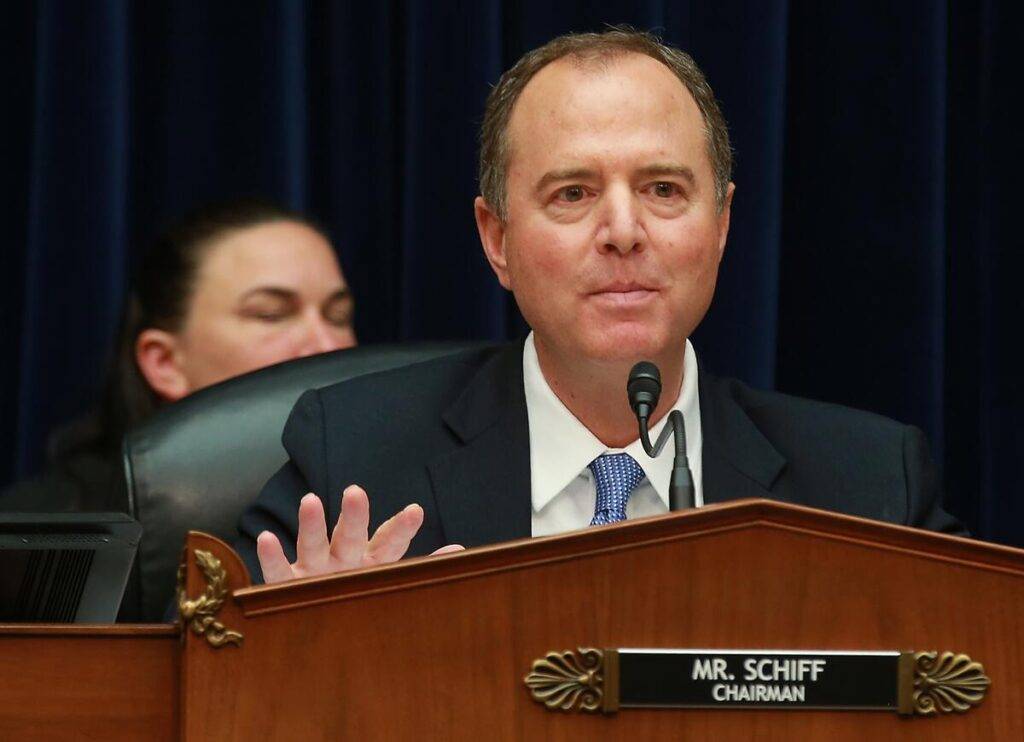California Democratic Representative Adam Schiff has been using the wildfires currently ravaging his state to criticize President-Elect Donald Trump, raising concerns over the lack of federal aid in the aftermath of these disasters.
In an interview with ABC News, Schiff spoke with host Jon Karl about the ongoing efforts to combat the fires in Los Angeles and his concerns about Trump’s response once he assumes office. Schiff emphasized the importance of collaboration between Trump and California officials, particularly Governor Gavin Newsom, to ensure that the state receives the necessary resources for recovery.

Karl asked Schiff about the strained relationship between Trump and Newsom, inquiring about the importance of them working together, especially considering the harsh rhetoric exchanged between the two. Schiff responded by stressing the necessity of unity in addressing the wildfire crisis.
“It’s going to be really important for the incoming president to work with all of us in California to make sure that we get the resources we need to put out these flames and get the relief we need,” Schiff said. He also noted that throughout his time in Congress, he had never considered the political affiliation of a state when approving disaster relief. “It has never mattered to me if it’s a red state or a blue state,” he explained. “We’re all in this together. This is the United States of America.”
Schiff’s remarks highlight his expectation that the incoming president should prioritize collaboration and put politics aside when it comes to aiding disaster-stricken states like California. His comments reflect a desire for the new administration to act swiftly and effectively to support the victims of the devastating fires.
However, Schiff’s tone has evolved over the past few weeks. Just a week before his interview with ABC News, Schiff was advocating for more bipartisan cooperation. Speaking with NBC San Diego, he talked about the need to “reach across the aisle” and work with Republicans as Trump prepared to return to the White House. At the time, Schiff acknowledged the challenges of balancing his role as a California representative with the demands of opposing Trump’s policies.
“There are times I’m going to have to stand up to the president and push back,” Schiff said. “Californians are going to expect that of me.” He also expressed hope that there was room for cooperation on issues such as healthcare, the economy, and affordable housing, which he believes could lead to bipartisan solutions.
Despite his previous stance on finding common ground with Republicans, Schiff’s tone shifted after Trump won the election. Following the victory, Schiff publicly criticized Trump and his administration, particularly in light of the President-Elect’s cabinet appointments. Schiff’s criticism extended to the ongoing Russia investigation, a subject that has remained a significant point of contention between him and Trump.
During a CNN interview, Schiff was questioned by Jake Tapper about his role in the investigation into Trump’s campaign and alleged ties to Russia. Tapper asked Schiff if he regretted his statements regarding potential collusion, especially considering the Mueller report’s conclusions, which did not find definitive evidence of conspiracy. Schiff stood by his position, arguing that there was clear evidence of collusion, including meetings between Trump’s campaign manager and Russian intelligence.
Schiff’s stance on the Russia investigation led to his censure in the House of Representatives in 2023, a move that further intensified his contentious relationship with Republicans. His allegations about Russian interference and collusion with Trump’s campaign continue to be a source of division.
Despite these ongoing disagreements, Schiff has maintained a stance of bipartisanship when it comes to addressing California’s needs, particularly in the wake of the wildfires. His remarks about working with the incoming president to secure disaster relief illustrate his desire to set aside political differences in times of crisis. However, his previous comments and actions demonstrate the complexity of navigating a deeply polarized political environment.
Schiff’s call for cooperation with Trump on wildfire recovery may be seen as a pragmatic approach in light of the dire situation California faces. However, it also reflects the tension within the Democratic Party, as Schiff tries to balance his progressive values with the practical needs of his constituents. How this dynamic will unfold in the coming months remains to be seen, especially as the political landscape continues to shift under a new administration.
As the fires continue to wreak havoc on California, Schiff’s ability to work with the new president and other federal officials will be critical in ensuring the state receives the resources it needs to rebuild and recover. However, his evolving rhetoric suggests that while he is committed to disaster relief, he will also continue to push back against policies he believes are harmful to his constituents.